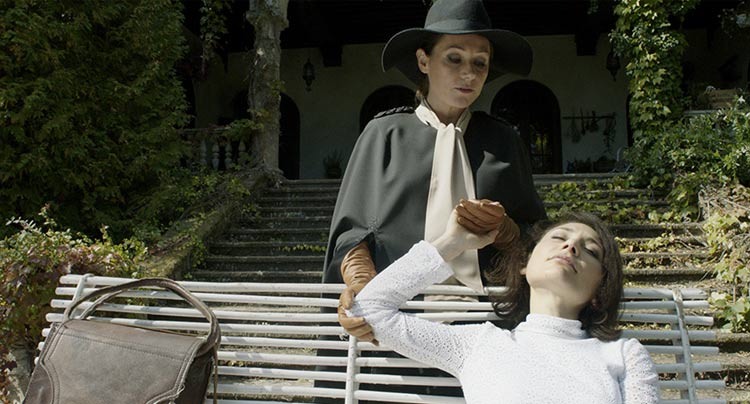TIFF 2014: The Duke of Burgundy

It’s hard to discuss what exactly goes on in The Duke of Burgundy because it might ruin writer/director Peter Strickland’s surprises. Following the relationship between two entomologists, Cynthia (Sidse Babett Knudsen) and the younger Evelyn (Chiara D’Anna), the film shows the unconventional partnership between the two women. They go through a daily ritual, Cynthia ruthlessly barking orders at Evelyn to clean around the house and punishing her if she doesn’t do her job right. It’s a dominant and submissive relationship, but how those roles are assigned, along with how those roles shift throughout, make for captivating viewing.
Inspired by the 70’s erotic films of Jess Franco, The Duke of Burgundy’s style is at once familiar and yet completely odd. Taking place primarily at a gorgeous estate, covered in vines and surrounded by trees, Strickland uses the setting to establish the film’s fairytale-like atmosphere as well as Evelyn’s intense love for Cynthia. Strickland pushes the intimacy between the two women to the breaking point, and when Evelyn’s passion consumes her the film goes into several astoundingly abstract sequences, much like the climactic freak out in Strickland’s last film Berberian Sound Studio. The tactic works much more effectively here because of how closely the form ties into the characters’ emotions.
And amazingly, for a film dealing with a BDSM relationship, Strickland never shows a hint of judgment or negativity towards Evelyn and Cynthia’s preferences. Yes, some of their dialogue, including a discussion over whether or not they want to buy a “human toilet,” is naturally funny to hear. But the humour comes from the absurdity of what’s being said; the film never laughs at Cynthia or Evelyn for their desires, nor does it try to explain their kinks. It’s the most refreshing part of a wonderfully off-kilter experience. The Duke of Burgundy is sensual (kudos to Strickland for showing how nudity isn’t needed to make something erotic), stunning, and riveting from start to end. It’s one of the festival’s real discoveries, and should continue to elevate Peter Strickland’s status in cinema.
